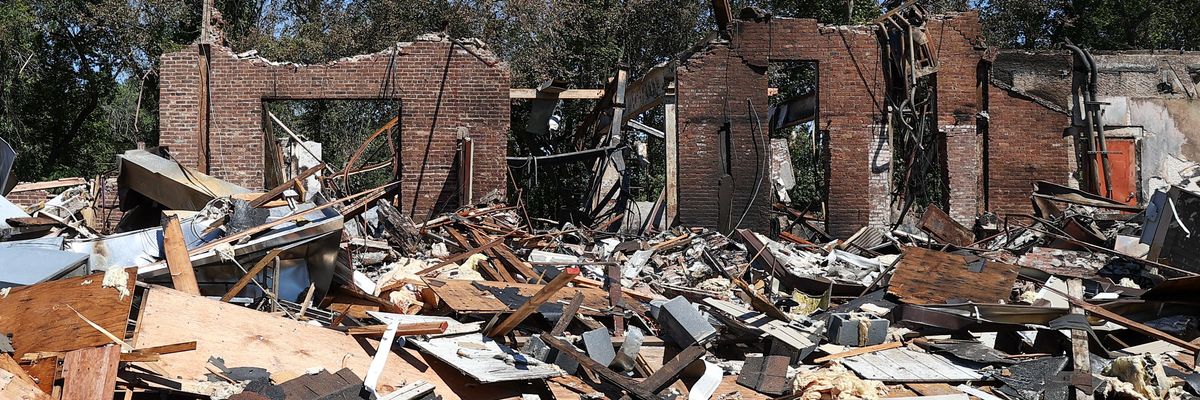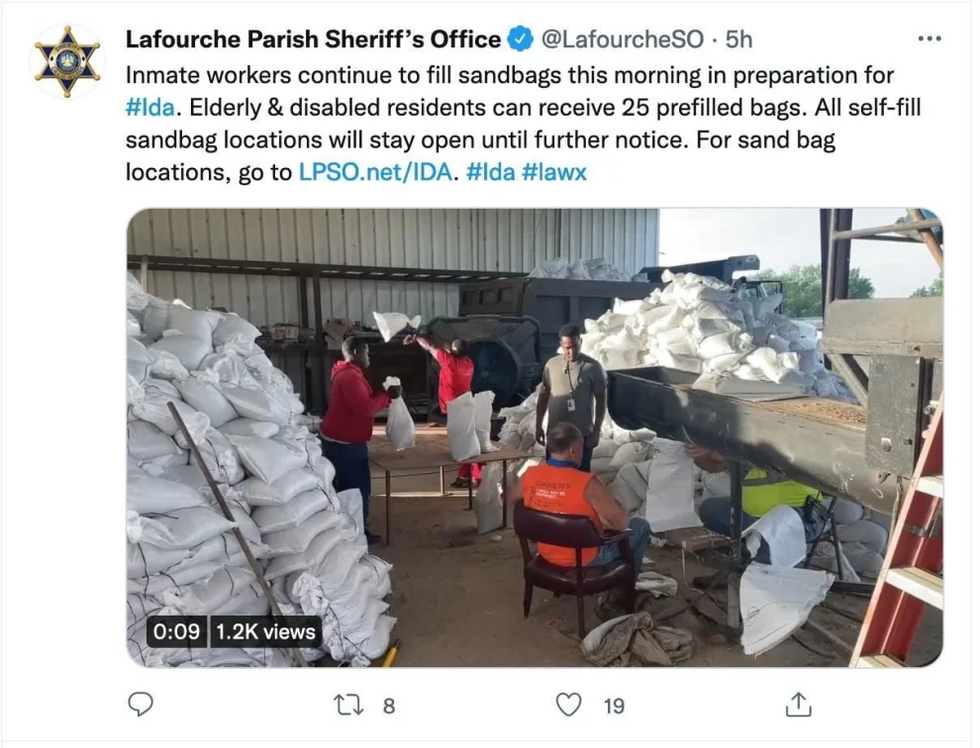"If you have already evacuated, do not return," declared Louisiana Governor John Bel Edwards on Tuesday, instructing residents who fled coastal communities before Hurricane Ida's landfall. Edwards' advice seemed healthy for an area enveloped by flooding, a heat/humidity index exceeding 100 degrees, and no electricity to help stay cool or sustain fresh food.
Yet many evacuees felt compelled to return home, even under dangerous and uncomfortable conditions. The states absorbing Ida's first U.S. impact and storm surge: Louisiana, Alabama, and Mississippi are among the poorest, ranking 3rd, 4th and 5th in percentage of residents receiving Supplemental Nutrition Assistance Programs (SNAP) benefits.
About 73% of SNAP recipients in these states reside with children and 36% are with family members who are elderly or have disabilities, making any homeless span especially difficult even without economic stresses. Governor Edwards offered no guidance on how those folks might pay for scarce lodging, transportation, and feed themselves away from their kitchens with an average SNAP benefit of $1.40 per meal. (Benefits will rise nationally in 2022 under new rules helping recipients meet current standards for a healthy diet.)
These factors clearly contributed to needless deaths during Hurricane Katrina in 2005. When researchers examined why many Black residents did not evacuate New Orleans before that storm, they found lack of resources and fear of discrimination away from home were two of the top four reasons.
The New England and Mid-Atlantic states hammered by Ida on her northward journey are wealthier, but regardless of location, low-income residents are most likely to lose their homes or lives. Less wealthy individuals are more likely to live in low-lying areas, rent or own less sturdy structures, and have inadequate neighborhood infrastructure that can become lethal in severe weather events.
Among those who died in Ida's Northeast impact zone, many drowned in basement apartments in the Queens borough of New York City, as rapid water pressure build-up thwarted their attempts to escape through doors or windows. It could have been far worse, since thousands of low-income residents, including many new immigrants, crowd into basement dwellings subdivided for rent by Queens homeowners. Many units feature hazards like improvised electrical wiring and windowless bedrooms.
As in New York, our heating climate and accompanying severe weather disproportionately injure people of color. Structural racism often underlies economic vulnerability, while direct racism compounds problems in crises. Nearly paralleling state poverty rates, Mississippi, Louisiana and Alabama rank 1st, 2nd and 5th in Black residents as a percentage of population. Seemingly reinforcing memories of police denying passage to people fleeing Katrina, reports emerged of Black visitors being refused entrance to nearby communities.
South of New Orleans, LaFourche Parish Sheriff's Department helpfully offered pre-filled sandbags to residents of the overwhelmingly white community, courtesy of free labor by people in jail awaiting trial, posting of bail, or release. Detainees remained in jail even after evacuation orders were issued, despite the barbaric consequences of this practice during Katrina (and more than 3,000 detained people being killed by COVID).
While we don't know the real-time population of the LaFourche jail, Louisiana leads the nation in jailing its citizens and, like many states, Black people are vastly over-represented in detention. Such injustice fuels the growing number of organizations working to radically reduce instances of cash bail.

This Twitter post from the LaFourche Parish Sheriff's Office in Louisiana was deleted
after online commenters pointed out coercing involuntary labor is a federal felony.
Despite some repetition of injustices observed during Katrina, we should celebrate progress, thanks to public outrage and activism sparked by that tragedy, and use those successes to drive more. At the forefront, many of the most vulnerable neighborhoods in and around New Orleans survived Hurricane Ida's wallop, thanks to investment of $14.5 billion in flood-prevention infrastructure post-Katrina. Such projects exemplify the public investment needed in the pending federal infrastructure bill.
Yet many levees outside the spotlight of New Orleans were left unimproved and failed to protect communities from Ida's flooding. When the Army Corps of Engineers conducted a cost-benefit analysis that deemed the Indigenous community of Ile de Jean Charles would not be included in a regional new levee-building project, it rendered destruction inevitable. As a UCLA Law Review article noted, "This was essentially a decision to flood out Isle de Jean Charles in its entirety in order to mitigate flood damages in the regions protected by the levee. The areas immediately outside of the protected zone will be inundated by the flood waters diverted from the protected area."
Of course, rising seas invariably will require hard decisions that sacrifice some homes and communities, but we should err on the side of protecting the most vulnerable people first--even if that means using funds to help them relocate, rather than to fortify.
Returning to the success of work to secure New Orleans, could the forest fires, hurricanes, and other climate-related disasters of 2021 catalyze efforts as Katrina did? Might we finally jolt policy-makers into real action to slow global warming, protect vulnerable people, and prioritize environmental health? It's an open question, but one we have power to influence. As debate rages on the infrastructure bill in Congress, let's recognize people of color are those most often harmed by failing or absent infrastructure and ensure whatever legislation emerges makes increasing equity a priority.
Most Americans recall how Katrina exposed injustice and vulnerabilities in the Gulf region, but experiential learning is far more powerful than observing through media. While other hurricanes have struck the Northeast, this storm brought unprecedented rain and damage to the New York City metro --our most populous region. More people now understand viscerally that climate change is not just a problem for others, but a threat to themselves. It's a "teachable moment" we should seize to turn awareness into action and public policy to advance justice in many forms.





